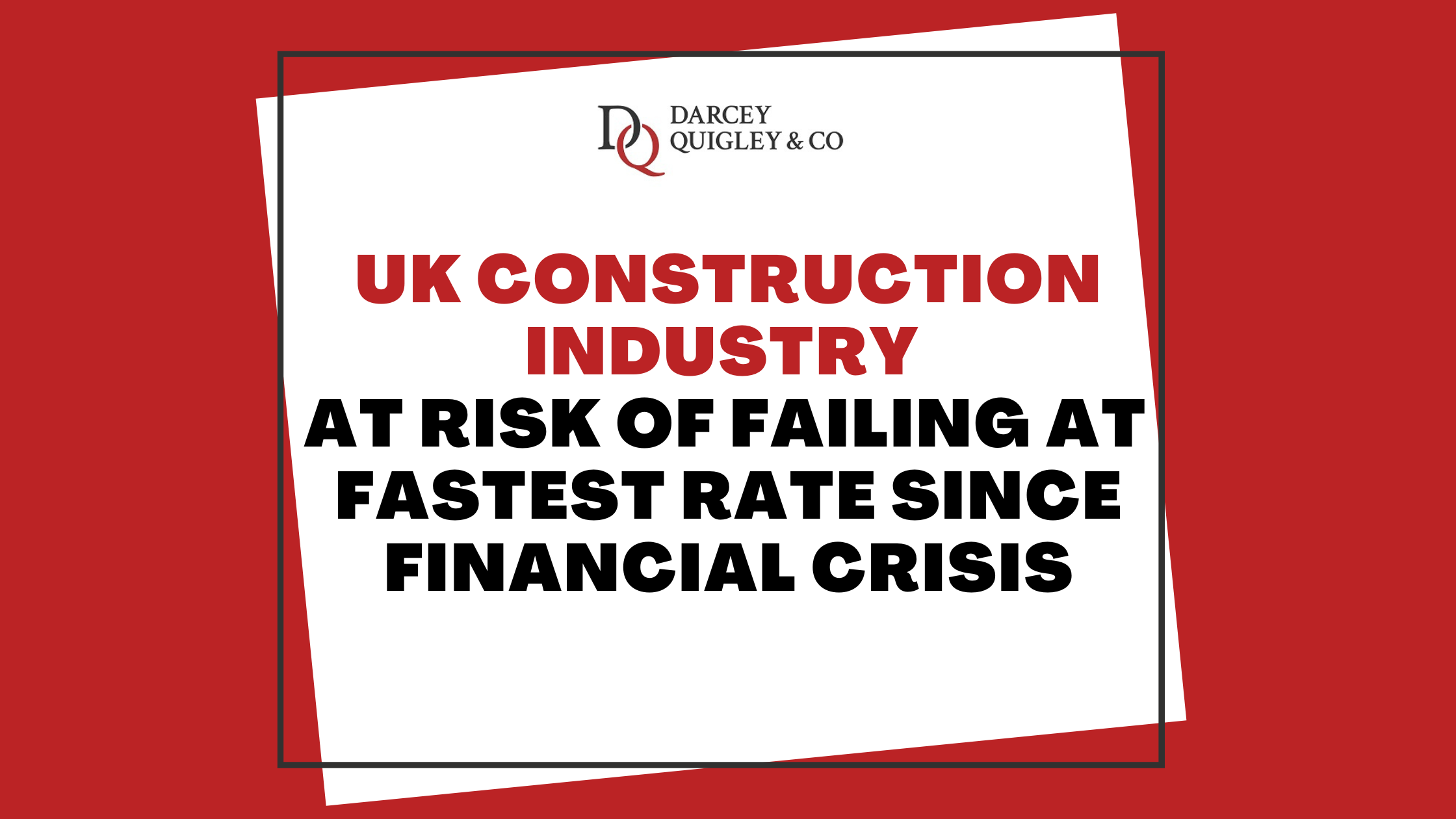The Rise of Construction Insolvencies
Responsible for every one in six insolvencies this year (March, 2024), it is safe to say that the construction industry is not having the best year so far. Accounting for approximately 62% of the UK market, the industry continues to play a pivotal role in the growth and development of our society. So why are more and more construction businesses filing for administration? Well, this blog outlines the main challenges the construction industry currently faces as well as addressing the ‘domino like effect’ that these challenges will subsequently have on businesses within this market as a result.
The Various Challenges Within the Construction Industry
- Labour Shortages
While at an all-time high, the demand for labour continues to be heavily outweighed by the shortage of labour skills. Without the necessary skills, businesses within the construction industry have continued to see a gradual increase in builder costs as a result. This is influenced by the fact that there are less people joining the industry than leaving it. Some of the contributing factors for this include:
- Pay
The outdated perception that construction is a low paying job continues within the 21st century. Many believe that they must work their way up the ladder in order to make a standard salary in the UK. This is, however, false. According to Glassdoor, the average salary within the UK construction industry is £38,339, a 10% increase on the average salary of any UK worker (£34,963).’
- Brexit
Prior to leaving the European Union, the UK construction industry relied heavily on the relocation of foreign workers. Now with higher barriers of entry, it is now virtually impossible to fill any worker gaps within the construction industry. This knock-on effect has led to an increasing amount of projects being postponed and a rise in labour costs.
- Lack of Flexibility
Ever more apparent since the start of the COVID pandemic, flexibility has slowly become the norm for most working people in the UK. Particularly with the younger generation, the idea of work-life balance has become increasingly more important when choosing a job. Unfortunately, as the construction industry is a job that requires physical labour, it is not surprising that the number of people entering the construction industry has declined throughout the years.
- Lack of Technology
The advancement of technology has not been heavily embraced by the construction industry as of yet. Rooted in tradition, many construction companies are reluctant to introduce tools which would replace the so-called ‘hands-on’ approach that construction typically involves. As a result, many companies within this type of industry stick to their traditional ways of working, disregarding the increase in productivity, heightened safety standards and improved environmental benefits that technology could provide to their business.
- Plagued by Late Payments
The construction industry is sadly known for late payments. Delays in receiving payments can disrupt cash flow, hinder the ability to pay suppliers and subcontractors on time, and adversely impact overall project timelines. Additionally, disputes over work quality, change orders, or delays in project completion can lead to disagreements regarding invoiced amounts, further complicating the payment process. The cyclical nature of construction projects, with periods of high activity followed by slower periods, can also exacerbate the challenges of managing unpaid invoices.
The Domino Effect – Rise in Insolvencies
Due to its unique business characteristics, it is not surprising that there has been a gradual increase in the number of insolvencies within the construction industry. In 2024 alone, the construction industry accounted for nearly 15.8% of England and Wales insolvencies and 15.7% in Scotland respectably. This finding subsequently put the construction industry at the top of the insolvency chart as a result. While a high insolvency rate would be expected due to the industries heavy reliance on project-based work and longer contract cycles, the domino effect in which preventable challenges such as labour shortages and lack of technological advancement has had on the industry has only worsened findings even more. Labour shortages for instance has squeezed company margins, leaving projects unfinished and increasing builders’ costs in turn. Lack of technological adoption has only further amplified the issue by limiting productivity, opportunities and overall safety of the industry as a whole.
Get help before it’s too late!
It is important to understand that once a company has filed for bankruptcy or administration, the debt will become increasingly more difficult to recover. Therefore, it is vital that those who have outstanding invoices decide to action their debt as early as possible. This will help strengthen the case for recovery and increase the likelihood of recovering the total amount owed in turn. If late payments have been affecting your business, why not book a call with one of our friendly debt recovery specialists or phone 01698 821 468 today!
Lynne is the Founder and CEO of Darcey Quigley & Co.
She is passionate and determined to help businesses get overdue invoices paid quickly.
Having worked within the credit management industry for over 27 years and ran UK leading commercial debt recovery specialists Darcey Quigley & Co for over 18 years, Lynne has helped businesses recover commercial debts from every continent across the globe.
Connect with me on LinkedIn!









